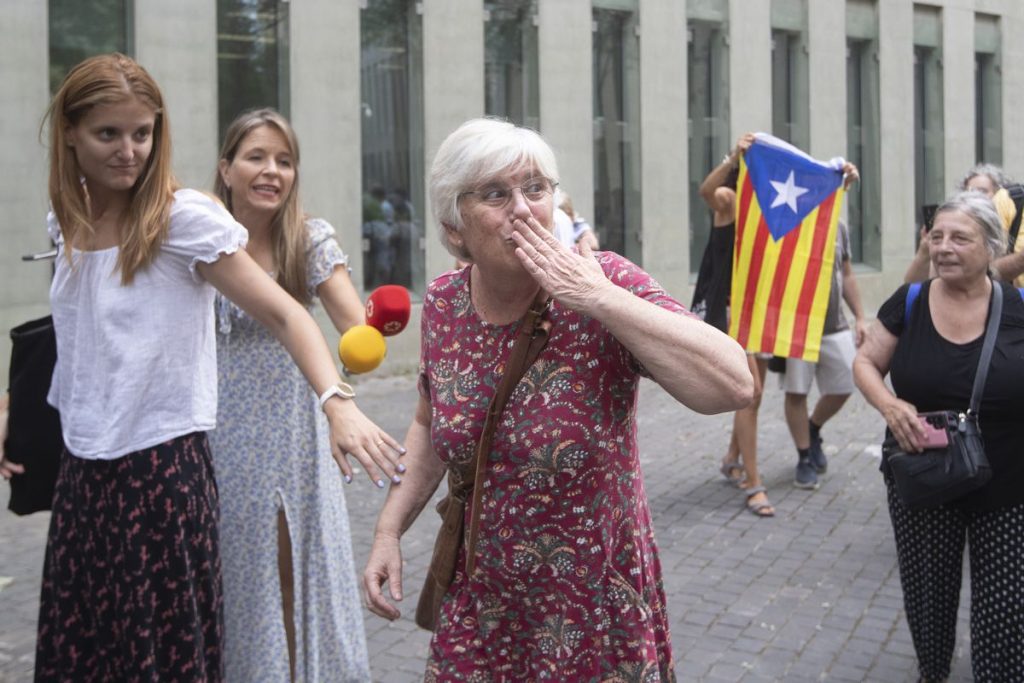The Constitutional Court has rejected two appeals filed by former President of the Generalitat, Quim Torra, and former Education Minister of the Catalan government Clara Ponsatí for alleged violation of their political rights during different stages of the Catalan independence process. Torra’s appeal was related to his loss of the seat he held in the Catalan Parliament after being convicted of disobedience. Ponsatí’s lawsuit was based on decisions by the Central Electoral Board (JEC) that denied her recognition as a Member of the European Parliament for failing to take the oath of allegiance to the Spanish Constitution to access the position.
In Torra’s case, the Constitutional Court issued a ruling rejecting the protection sought by Torra against various decisions of the Supreme Court’s Administrative Chamber. These resolutions denied the former president’s request to suspend the agreement of the Central Electoral Board that resulted in the loss of his regional seat. The JEC took this decision because Torra was first convicted by the Superior Court of Justice of Catalonia and later by the Supreme Court for disobedience for not removing pro-independence banners from the facade of the Generalitat Palace, as ordered by the JEC.
Ponsatí’s appeal against the JEC’s decision to deny her credentials as a Member of the European Parliament was also rejected by the Constitutional Court. This decision was based on the fact that she did not fulfill the requirement of swearing allegiance to the Spanish Constitution, as stipulated by the General Electoral Law. The Court’s ruling, led by conservative magistrate Ricardo Enríquez, is based on a previous case involving Carles Puigdemont and Toni Comín, where the European Parliament recognized Ponsatí’s full exercise of her role as a Member of the European Parliament retroactively to February 1, 2020.
The Constitutional Court’s decision in both cases highlights the complex legal issues surrounding the Catalan independence process and the consequences it has had on the political rights of various individuals involved. The rulings provide clarity on the application of electoral laws and constitutional requirements in cases where elected officials have been convicted of criminal offenses related to their political activities. The Court’s reasoning emphasizes the importance of legal procedures and compliance with constitutional norms in the exercise of political rights at both the regional and European levels.
Overall, the Constitutional Court’s rulings serve as a reminder of the challenges faced by political figures involved in the Catalan independence movement and the legal implications of their actions. The Court’s decisions uphold the rule of law and affirm the importance of respecting electoral procedures and constitutional obligations in the exercise of political rights. The cases of Quim Torra and Clara Ponsatí illustrate the complexities of navigating legal and political systems within the context of the Catalan independence movement and the ongoing disputes over sovereignty and self-determination in Catalonia.


